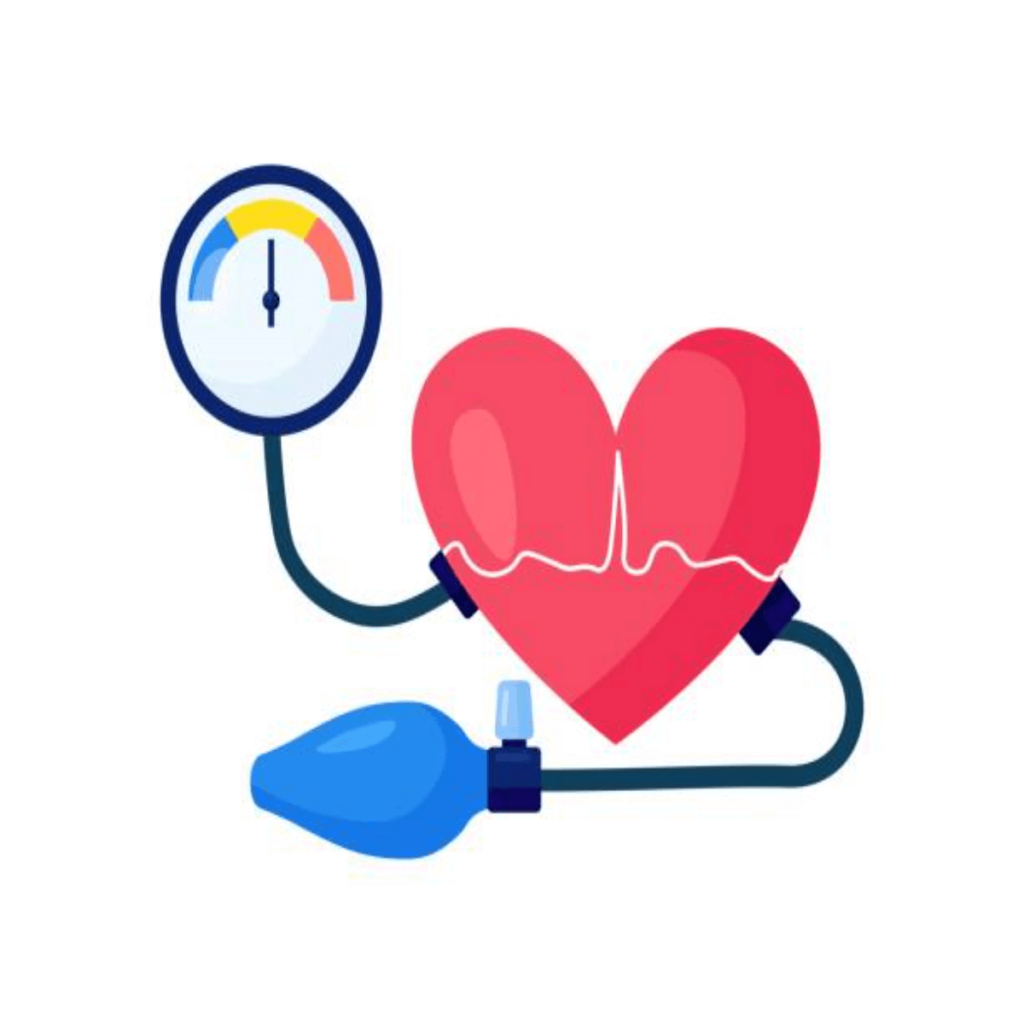Heart Health
Managing High Blood Pressure: A Holistic Approach to Heart Health
High blood pressure, medically known as hypertension, is a widespread health issue with far-reaching implications for individuals worldwide. If left unmanaged, it poses a significant risk for severe cardiovascular complications. Thankfully, there exists a range of effective strategies to not only manage high blood pressure but also foster overall heart health. In the following sections, we will explore evidence-based lifestyle modifications that empower individuals to watch over their blood pressure levels, ultimately strengthening the well-being of their cardiovascular system.
Eating a Heart-Healthy Diet
A cornerstone of managing high blood pressure is adopting a heart-healthy diet. This entails making thoughtful choices about the foods we consume. A diet low in saturated and trans fats, while rich in fruits, vegetables, and whole grains, has been shown to have a positive impact on blood pressure regulation. Additionally, limiting salt intake is crucial, as excessive sodium can contribute to elevated blood pressure levels. The Dietary Approaches to Stop Hypertension (DASH) diet, which emphasizes these principles, has been particularly effective in reducing blood pressure levels and promoting overall heart health.
Exercise as a Pillar of Heart Health
Regular physical activity is another integral component in the management of high blood pressure. Engaging in at least 30 minutes of moderate-intensity exercise on most days of the week can significantly contribute to blood pressure regulation. Activities such as brisk walking, cycling, and swimming have been shown to have a positive impact on cardiovascular health. Exercise not only helps maintain a healthy weight but also enhances overall cardiovascular function, making it an essential aspect of any blood pressure management plan.
Attaining and Maintaining a Healthy Weight
Maintaining a healthy weight is integral to heart health and blood pressure management. Excess weight can exert strain on the heart, hampering its ability to pump blood effectively and adversely impacting blood pressure levels. Even a modest reduction in weight yields notable benefits, significantly improving blood pressure. Thus, striving for a healthy weight is crucial, as it not only alleviates the heart’s burden but also enhances blood pressure control, emphasizing the interconnectedness of weight management and cardiovascular well-being.
The Detrimental Effects of Smoking
Smoking poses a substantial risk to heart health and blood pressure regulation. The harmful substances in tobacco harm arterial linings, promoting cholesterol buildup and hastening the development of atherosclerosis—a condition marked by narrowed arteries due to plaque accumulation. This compromises blood flow and heightens the risk of hypertension. Quitting smoking, however, is a pivotal stride toward better heart health. It leads to notable enhancements in blood pressure levels, marking a crucial step in safeguarding cardiovascular well-being.

Moderating Alcohol Consumption
Balancing alcohol intake is crucial for maintaining heart health and blood pressure. While moderate consumption may offer some health benefits, excessive drinking can lead to elevated blood pressure levels. It’s vital to be mindful of alcohol intake, especially for individuals with high blood pressure. In such cases, limiting or even abstaining from alcohol can be a prudent choice to ensure optimal heart health and effective blood pressure management.
Managing Coexisting Medical Conditions
Managing high blood pressure may be intertwined with other medical conditions, such as diabetes or kidney disease. These conditions can influence blood pressure levels and require comprehensive management. Working closely with a healthcare provider to develop a tailored approach that addresses all relevant health concerns is essential for effective blood pressure control.
Stress Management for Blood Pressure Control
Chronic stress, if left unaddressed, can have a notable impact on blood pressure levels. This is because ongoing stress triggers the body’s “fight or flight” response, leading to the release of stress hormones that can temporarily elevate blood pressure. To counteract this, it’s crucial to actively manage stress through healthy and constructive means. Engaging in relaxation techniques like deep breathing exercises, meditation, or yoga can help calm the nervous system and lower stress-related blood pressure spikes. Additionally, dedicating time to enjoyable hobbies or activities that bring a sense of fulfillment and relaxation can be highly effective in alleviating stress.
Regular Blood Pressure Monitoring
By routinely checking blood pressure readings, you can track your progress over time and identify any potential fluctuations. This information serves as a valuable tool for making informed decisions about lifestyle modifications or treatment adjustments as needed. It also provides a direct line of communication between you and your healthcare providers, facilitating collaborative efforts in blood pressure management. Additionally, regular monitoring helps identify trends or patterns that may require attention, ensuring that any potential issues are addressed promptly.
Consistent Follow-ups with Healthcare Providers
Regular check-ups with your healthcare provider are like compass points guiding you towards better heart health. These appointments are tailor-made for your unique health needs, providing you with personalized care that can make all the difference. Your healthcare professional will keep a close eye on your blood pressure levels, making sure they stay in the safe zone. They’ll also fine-tune your treatment plan if needed, ensuring it’s working optimally for you.
Looking after your heart and keeping your blood pressure in check is like a thoughtful gift to your future self. I’ve come to realize that those small yet consistent steps—like making conscious food choices, staying active, and maintaining a healthy weight—truly make a significant impact. Admittedly, saying no to smoking and being mindful of alcohol can be a bit of a challenge (trust me, I’ve been there and it’s no easy feat!), but the benefits are worth it. And for those dealing with additional health concerns like diabetes, there’s no need to fret. Your healthcare provider is your steadfast partner in piecing it all together. I’ve learned that each little decision we make adds up to a future filled with a healthier heart and overall well-being.


